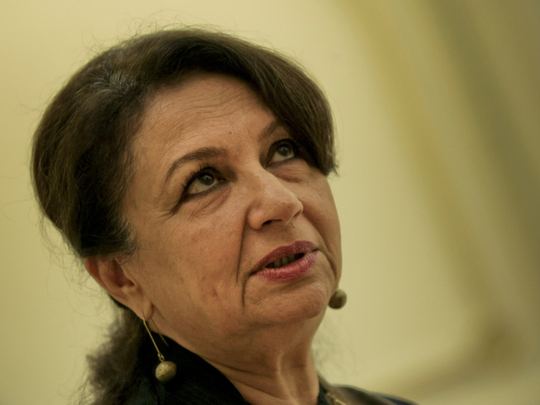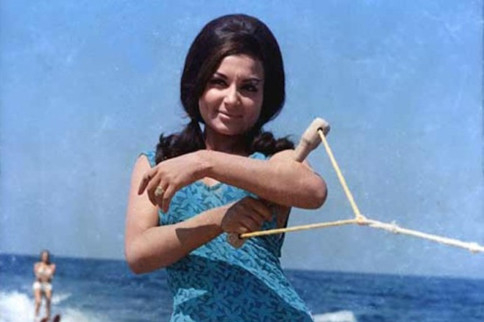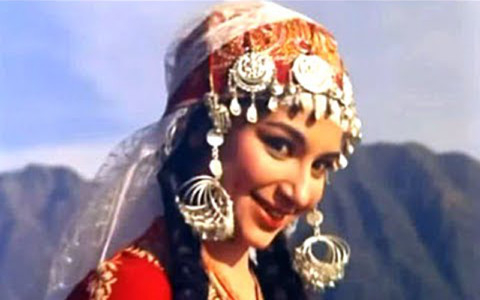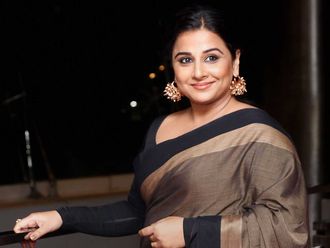
Bollywood actress and former Central Board of Film Certification Chief Sharmila Tagore may be uncomfortable commenting on Leela Samson’s controversial resignation, but maintains the CBFC is an autonomous body.
In mid-January, the CBFC chief Samson quit after an appeals board approved the film Messenger of God directed by and starring Guru Gurmeet Ram Rahim Singh that was initially rejected by her panel. Samson also accused the CBFC of being “corrupt and coercive”. The Samson-led panel had rejected the film as she believed that it promoted superstition, but the Film Certification Appellate Tribunal overruled her decision and approved its release.
“I cant comment on today’s CBFC. I don’t think it is right. Once you have left a post and you have once been part of it, you shouldn’t sit in judgement on other people or comment,” said Tagore in an interview with tabloid!.
She was in Sharjah earlier in the week as the chief guest of Delhi Private School Sharjah in which the students put together a spectacle titled The Flight of Change at the Cultural Palace. However, she admits that being the chief of CBFC came with its set of challenges. She began her tenure as CBFC Chairperson in 2004 and stepped down in 2011 and during her seven-year-reign she was considered one of the most liberal CBFC chiefs.
“It was not a popularity contest neither was it a fun job. There were a lot of challenges. There were lots of street censorships in my time. For instance, lots of people were against films like Fanaa, Jodhaa Akbar and The Da Vinci Code. Many films were banned because they were creating a law and order problem,” said Tagore. The 70-year-old National Award-winning actress, who began her career in films with Satyajit Ray’s 1959 Bengali film Apur Sansar and topped it with Bollywood blockbusters such as Kashmir Ki Kali, Aradhana and Amar Prem, described the CBFC as an enabling body between the government, civil society and the entertainment industry.
“Our job was to give a certificate and not to change anything. Our job was to make a producer’s life easy because he has invested a lot of energy and money into his project. I wanted them to be comfortable. But sometimes there’s a gap between what the government thinks and sometimes you have to assure them that nothing will happen if the film releases. You will have to be in constant dialogue with these three sections I mentioned,” said Tagore. During her tenure, it was the ‘street censorships’ that played spoilsport.
“I don’t believe in that. I believe these are some vested groups who need visibility and they attack these big films … For instance Jodhaa Akbar faced many difficulties with a case in Bihar, Punjab and the producer had to run from pillar to post … As you know India is a huge country, full of paradoxes. The sensibilities change every 150 miles. You often have to please all India and it’s a difficult thing,” said Tagore. While she enjoyed most of her tenure, she still balks at films such as the adult comedy Grand Masti being approved for release.
“In my opinion, it shouldn’t have released anywhere. It was terrible yet it went through. While Grand Masti went through, some films didn’t such as the one on Kashmir. Since you are in that position, you can’t please everybody.”
However, such days of conflict are behind her. She’s currently enjoying gardening and spending time in her late husband and legendary cricketer Mansour Ali Khan Pataudi’s native home. A few days ago before this interview, she was the happy mother of a bride as she witnessed the marriage of her daughter Soha Ali Khan.
“The important thing is that they are happy,” said Tagore, referring to her children — both actors — Saif Ali Khan and Soha. While she seems content now, she is rarely seen on the big screen these days. She was last seen in the role of Deepika Padukone’s mother in the romantic comedy Break Ke Baad in 2010.
“I started at a very young age. I started work in the late 50s. So, I can work if and when I want,” said Tagore. But how difficult is to get a good role now?
Male-dominated industry
“There are fewer roles written for older actresses compared to actors. It’s a male-dominated society and the industry is also male-dominated. So these are facts of life. People feel that it’s the male actors who bring in the audience. It might be changing now but this is what people firmly believe. That could be one of the reasons why fewer roles are written for women. Many believe it’s difficult to find finance for female-oriented projects.” She may find it hard to find work, but Tagore believes that acting in films has become a coveted profession for women.
“Once upon a time, working in films was considered an iffy profession and it is no longer so. It is a coveted profession. People from good families are coming in, earlier it was not so. Working was bad enough and working in films was a no-no, it is no longer so,” said Tagore, who ruled supreme in the 1960s.
Considered to be one of the most bankable actresses during that era, she was courted by the best filmmakers and acted alongside top actors such as Shammi Kapoor, Rajesh Khanna, Sanjeev Kumar and Dharmendra. She also never shirked from taking on bold roles. In the romance Aradhana, Tagore played an unwed mother.
She also had the dubious distinction of being the first Bollywood actress to wear a bikini on the big screen in her film An Evening In Paris with Kapoor.
“Once upon a time they didn’t like it and then later it becomes a cult thing. I don’t worry about it so much. There is just one me. People can say good things or bad things about me but it is just me. I cant wait for their approval or disapproval. I lead my own life.”












